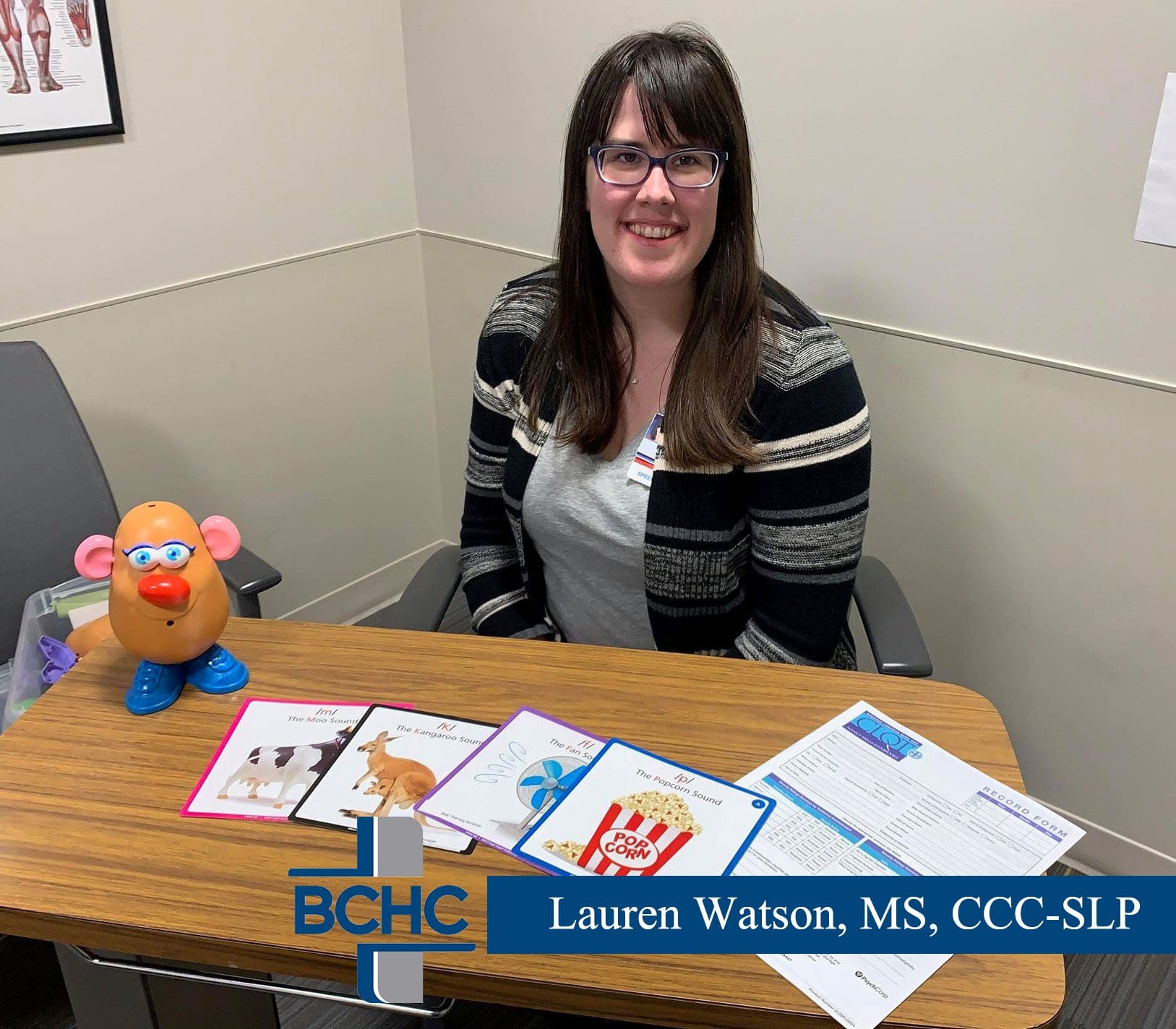
May is Speech Therapy Month – BCHC Offering Speech Therapy Services for All Ages
May is Better Hearing & Speech Month. According to the National Institute of Deafness and Other Communication Disorders (NIDCD), nearly 1 in 12 children between the ages of 3-17 in the US have had a disorder related to voice, speech, language, or swallowing in the past 12 months. Not only for children, speech therapy can also help adults who may be recovering from a brain injury, Parkinson’s disease, or adults with swallowing difficulties caused by a chronic disease.
Speech therapists are qualified to treat nine different domains of communication: speech, language, cognition, voice, swallowing, fluency, hearing, pragmatics, and alternative and augmentative communication (AAC). While speech therapy includes working with children who distort, omit, or substitute speech sounds, it also includes working with adults with slow, slurred, or discoordinated speech after a stroke or brain injury. Language therapy can provide parents or caregivers with strategies to help their late-speaking toddlers develop their language and grow their vocabulary, or it may look like helping a stroke survivor re-learn how to express their wants, needs, and thoughts. Swallowing therapy frequently involves exercises to strengthen the muscles used to swallow, but may include recommendations of how to alter a patient’s diet or foods in order to swallow safely. Therapy can include swallow exercises, practicing speech sounds, chanting sentences to practice using a fully resonant voice, or using cognitive strategies to perform daily tasks.
Children are frequently seen for speech, language, pragmatics, and fluency therapy, but may need swallowing therapy to work on expanding their palate and eating new foods. Adults are typically seen for swallowing, voice, cognitive, speech, and language therapy, but some adults may need therapy in order to practice using their AAC device more effectively during daily activities like ordering food at a restaurant using a voice generating device.
Once a referral is made by the patient’s primary care provider, the first appointment with the speech therapist will include an evaluation, where the patient or patient’s caregiver can discuss communication concerns or limitations. The therapist will evaluate the patient’s ability to complete certain communication tasks and make a treatment plan based off the presenting concerns, abilities of the patient, and age of the patient. With young children, speech therapy is typically play-based. For older children and adults, speech therapy is usually more structured tasks completed at a table.
Speech therapy services continue to be offered in-person through the BCHC Therapy Department; however teletherapy is available for patients who wish to remain home. In some cases, patients can be seen for an initial evaluation, but continue their therapy services through teletherapy at the therapist’s discretion.
For more information about Speech Therapy and all other therapy services at BCHC, please visit BCHealth.org or call (319) 332-0851. To stay up-to-date with the latest news and announcements from BCHC, please follow ‘Buchanan County Health Center’ on Facebook.

